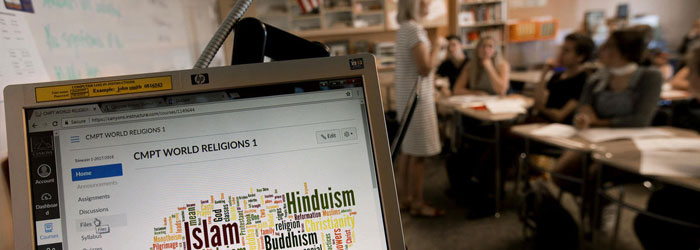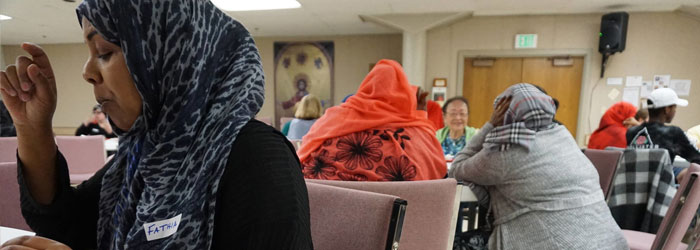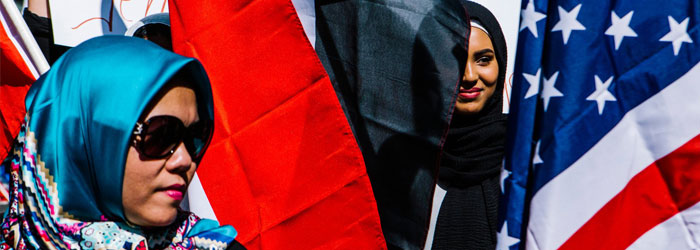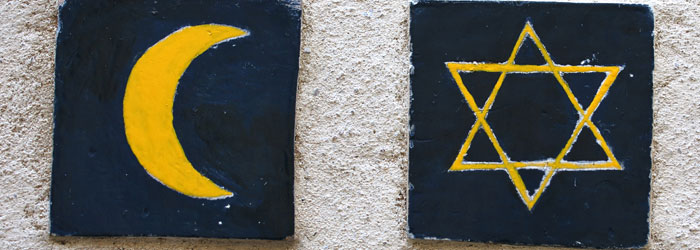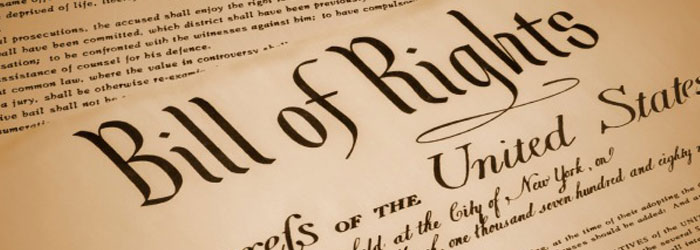A growing number of teachers and educators are pushing for religious literacy lessons in public schools. The teachers assert that it is crucial for children to be taught about major world faiths because this knowledge helps eliminate stereotypes and prejudices, and teaches children how to engage in potentially contentious discussions in a thoughtful and civil way. Additionally, in an increasingly connected global society, knowledge of religious beliefs and practices is now considered fundamental ...
“Eat with Muslims” Brings People Together for Food and Conversation
Following the 2016 presidential election, Fathia Absie and Ilays Aden, Muslim immigrants living in Seattle, wanted to do something to help bring people together. They started "Eat with Muslims," a program that brings people of different religious faiths together for meals and conversation, offering the interfaith dinner guests a chance to ask questions about Islam. So far, they have held 11 dinners in the Seattle area, each one drawing more and more people. According to Absie, they "realized we ...
Inclusion, Acceptance, and American Pride at the NYC Muslim Day Parade!
This weekend, thousands gathered in New York City for the city's annual Muslim Day Parade, a day to celebrate American Muslim culture and all that the Muslim community contributes to the city and country as a proud part of the larger American family. The event was important, too, for its message of inclusion and acceptance, as members of other religious communities joined in the festivities, including Rabbi Marc Schneier of the Foundation for Ethnic Understanding, who was the grand marshal of ...
When the Muslim and Jewish New Years Intersect
This year, the Muslim and Jewish New Years—Al-Hijra and Rosh Hashanah, respectively—have intersected on September 21. The shared New Year offers a special opportunity for interfaith dialogue, as we honor what we have in common across lines of faith, our shared connection to God, and ring in the new year together. READ MORE (Religious Reader) ...
Proud Muslims, Proud Americans
A new study by the Annenberg Public Policy Center at the University of Pennsylvania suggests that 1 in 5 Americans believes that Muslims (and atheists) lack First Amendment rights. This is, of course, completely false; the U.S. Constitution does not deny people rights based on religious beliefs. American Muslims value these rights very highly and members of the American Muslim community are engaged and active citizens who help their neighbors, run for office, and defend the U.S. and American ...

